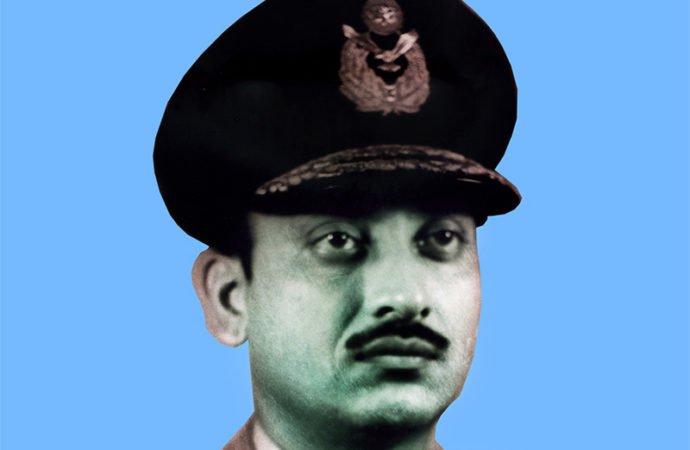Japan honoured BAF Air Vice Marshal (retd) AG Mahmud for his role in negotiating an aircraft hijacking in Bangladesh in 1977.
On 28 September 1977, a five-man group of the Japanese Red Army – a terrorist organisation – hijacked the Japan Airlines Flight 472. The flight had taken off from Paris and was bound for Tokyo. The hijackers took control of the aircraft after a stopover in Bombay. They directed the aircraft to Dhaka considering it to be a safe haven.
The DC-8 aircraft carrying 156 passengers landed at Tejgaon Airport when Ziaur Rahman had declared martial law to assume power from President Abu Mohammad Sayem.
The hijackers demanded a $6m ransom and release of their comrades from Japanese prisons. Mahmud, as the air chief, had taken position in the airport’s control tower from where he negotiated with the terrorists over three days.
During the negotiations, a military coup also took place, with several mutineers sprawling out onto the tarmac. The hostage spokesperson and Mahmud had established a cordial relationship by then, which was threatened by the mutineers escalating the situation into an open shootout among three armed groups.
The entire hostage situation was broadcast live by the fledgling BTV with support from the Japanese embassy. BTV, which would air for only four hours per day, essentially became a round-the-clock broadcaster for the duration of the crisis.
Notable historian and filmmaker Naeem Mohaiemen produced a documentary titled “The Young Man Was: United Red Army” in 2012.
Mahmud’s role in keeping the situation under control and securing the lives of every single passenger led the Japanese government to confer upon him the “Order of the Rising Sun, Gold and Silver Star” on Saturday.
Air Vice Marshall (retd) Mahmud, 83, was among 105 foreign recipients of the 2017 Spring Imperial Decorations. He was the youngest person to become the air chief of Bangladesh. He went on to become the minister for food, health and rehabilitation during the Ershad regime.
Source: Dhaka Tribune

